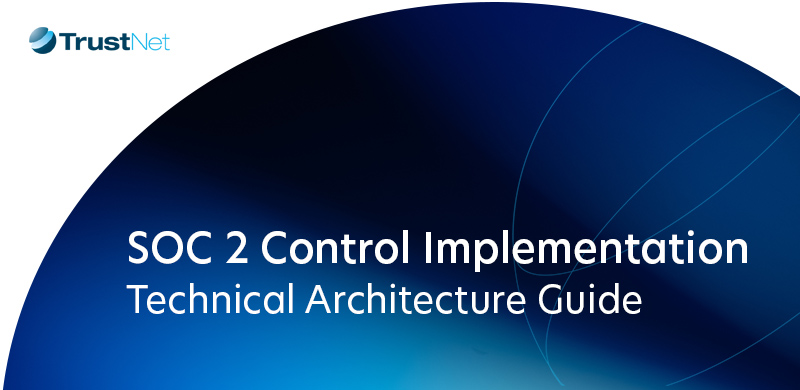Blog TrustNet: Facilitating Cybersecurity Compliance for Accounting Businesses
TrustNet: Facilitating Cybersecurity Compliance for Accounting Businesses

The advent of technology has brought numerous advantages to accounting businesses, offering improved efficiency, accuracy, and speed. However, it has also opened the door to an array of cyber threats that can compromise the integrity and confidentiality of financial data.
Accounting firms have become a lucrative target for cybercriminals due to the wealth of sensitive and valuable information they hold. These threats range from phishing attempts and ransomware attacks to sophisticated data breaches. The impact of such attacks extends beyond financial losses, leading to reputational damage and loss of client trust, which can be devastating for any business.
As cyber threats evolve in complexity and scale, so does the need for robust cybersecurity measures. This is where TrustNet comes into play. TrustNet can help facilitate cybersecurity compliance for accounting businesses, providing them with the necessary tools and resources to protect their digital assets and maintain the trust of their clients.
Understanding Cybersecurity Compliance
Cybersecurity compliance refers to the adherence to standards, guidelines, and laws designed to protect data and information systems. It involves implementing controls and measures to guard against cyber threats and ensure data privacy. Compliance in accounting businesses’ primary aim is to ensure that all financial accounting is carried out per accepted standards. It sets a measure to prevent fraud and ensure that financial records accurately reflect the company’s financial status.
Accounting compliance also ensures that a company maintains accurate and well-organized financial reports. This helps in risk management, employee training, data organization, and avoiding unwanted errors. Accountants, especially those working for public companies, must comply with reporting requirements such as those set by the Securities and Exchange Commission (SEC) and those found in the Sarbanes Oxley Act.
TrustNet has been the leading provider of cybersecurity and compliance services since 2003. Our comprehensive suite of services includes managed security, consulting, and compliance assessments for various standards. With our robust services,TrustNet effectively addresses a wide range of cybersecurity and compliance needs, making us a strategic partner for businesses aiming to enhance their security posture and meet compliance requirements.
For more on our cybersecurity and compliance services, Click Here
Cybersecurity Threats Faced by Accounting Firms
Accounting firms are appealing targets for cybercriminals due to the wealth of sensitive information they hold. This data, which often includes financial details and Personally Identifiable Information (PII), can be exploited for monetary gain or used in identity theft.
The most common cyber threats facing accounting firms include phishing attacks, malware, data theft, and ransomware. Phishing, in particular, has emerged as a significant threat, with cybercriminals tricking employees into revealing confidential information or login credentials.
Furthermore, cyber attacks can result in significant reputational damage for accounting firms. Clients trust these firms with their most sensitive information, and a breach can severely undermine this trust. Additionally, regulatory action by state and federal agencies is another risk accountants face due to cybercrimes.
Compliance and Security Measures
Regulatory bodies are pivotal in establishing compliance expectations for businesses across various sectors.
For instance, the Internal Revenue Service (IRS) in the United States sets forth regulations to ensure businesses adhere to tax laws while safeguarding sensitive financial data. It provides resources to help businesses understand their obligations and implement required security measures.
In the United Kingdom, the Cyber Essentials scheme is a government-backed initiative that outlines fundamental cybersecurity standards. The aim is to assist organizations in protecting themselves against common online threats and demonstrate their dedication to cybersecurity. Compliance with these standards can also be a prerequisite for specific government contracts.
The General Data Protection Regulation (GDPR) is another significant regulatory framework that impacts companies worldwide. Enforced by the European Union, GDPR sets strict rules for how businesses should handle and protect personal data. Non-compliance can result in hefty fines.
TrustNet stands out with our proficiency in guiding businesses through complex certification frameworks and achieving compliance. We offer compliance assessments and security services for various standards such as PCI, HIPAA, GDPR, ISO 27001, SOC, and more.
TrustNet’s team of experts stays updated with evolving regulations and standards, ensuring they can provide the most current tools and support. We equip businesses with complete solutions to meet and maintain compliance, safeguarding their operations and reputation.
Best Practices for Data Security in Accounting Firms
Security protocols are crucial in safeguarding sensitive financial data within accounting firms. These measures range from physical security to advanced cybersecurity, including artificial intelligence (AI) technologies. AI can help identify potential threats and vulnerabilities, providing additional protection against cyberattacks.
Furthermore, staff must sign confidentiality agreements to ensure customer data remains secure during and after employment with the firm. Regular security assessments are also essential to understand the existing threats and to devise effective defense strategies.
Here are some top cybersecurity protection tips to help protect your accounting firm:
- Carry Out Regular Cybersecurity Evaluations
The initial step in enhancing the cyber defense of accounting firms involves systematic security audits and risk evaluations. These assessments expose the firm’s vulnerabilities and pinpoint the primary threats. Critical assets, such as hardware, software, networks, and data storage, should all be included in these assessments.
- Adopt Robust Passwords and Dual-factor Authentication
Among the most straightforward yet potent defenses against cyberattacks are robust passwords and dual-factor authentication. Easy-to-crack passwords are a hacker’s delight. Steer clear of predictable passwords.
- Establish a Firewall
A firewall is a crucial device for safeguarding your business network. It acts as a barrier between your network and the internet, scrutinizing all traffic and thwarting unauthorized access attempts.
- Maintain Updated Systems
Outdated software is often a prime target for cybersecurity attacks. Cybercriminals exploit vulnerabilities in old software to gain unauthorized entry into the company’s systems. By keeping operating systems and applications current, the company can lessen the risk of cyberattacks.
- Encode Confidential Data
Encoding transforms sensitive information into an indecipherable format that can only be decoded with a specific key. By encoding confidential data, including financial details and PII, the company can protect against unwanted intrusion.
- Regularly Archive Data
Frequent archiving allows you to restore data swiftly during an attack, minimizing its impact on your operations and clients. Archiving data to the cloud, an external hard drive, or a hybrid solution can prevent significant losses.
- Complying with Security Certifications Like Cyber Essentials
Compliance demonstrates a firm’s commitment to cybersecurity and adherence to best practices. Certifications like Cyber Essentials require firms to implement specific measures to protect their data, such as firewalls, secure configurations, access controls, and malware protection.
- Collaborate with Cybersecurity Experts like TrustNet
Consider joining forces with professional service providers such as TrustNet. We can help devise strategies to tackle vulnerabilities in your network and systems. Additionally, we can provide continuous support and oversight to ensure sustained security and compliance.
TrustNet’s Role in Cybersecurity Compliance
TrustNet’s suite of services is comprehensive, covering everything from vulnerability assessments and penetration testing to cybersecurity training and compliance audits. Our holistic approach to cybersecurity ensures that all aspects of an accounting firm’s cybersecurity needs are addressed, from technical defenses to employee awareness and education.
Transform your accounting business’s cybersecurity and compliance with TrustNet. Talk to an expert today.




